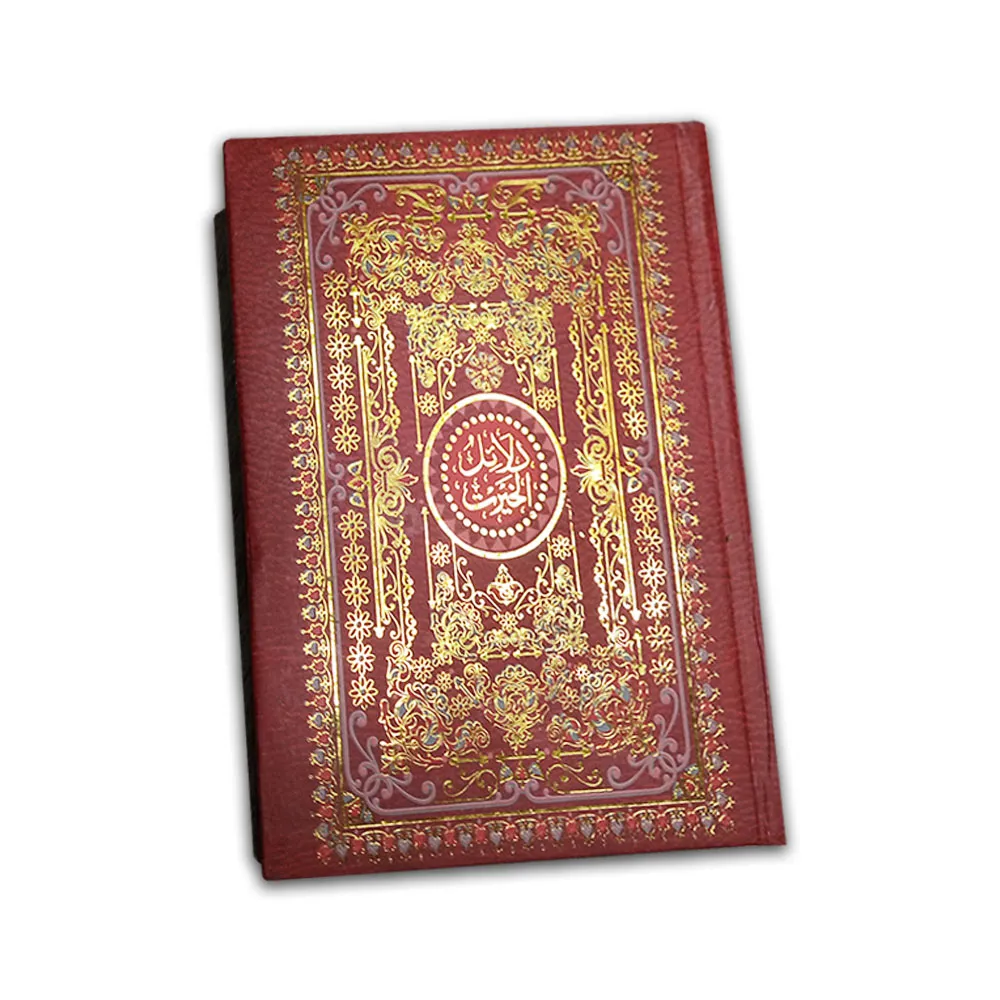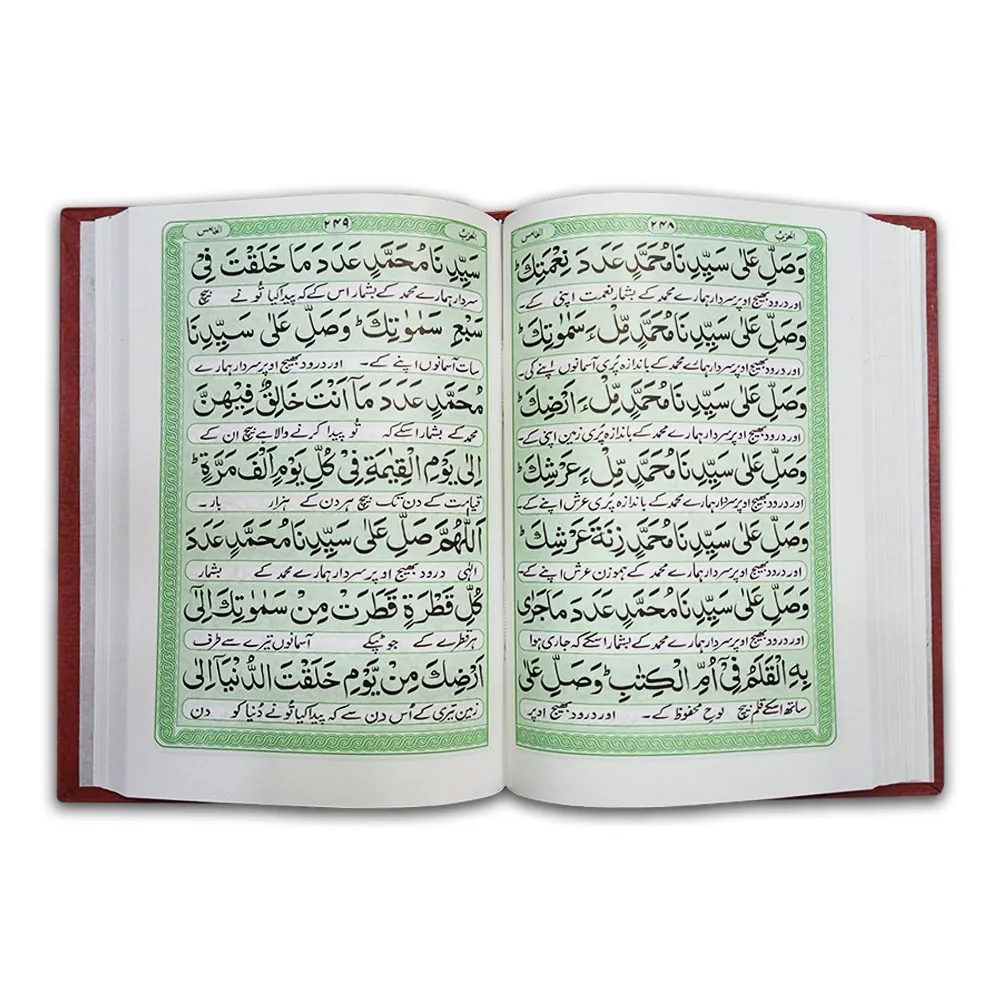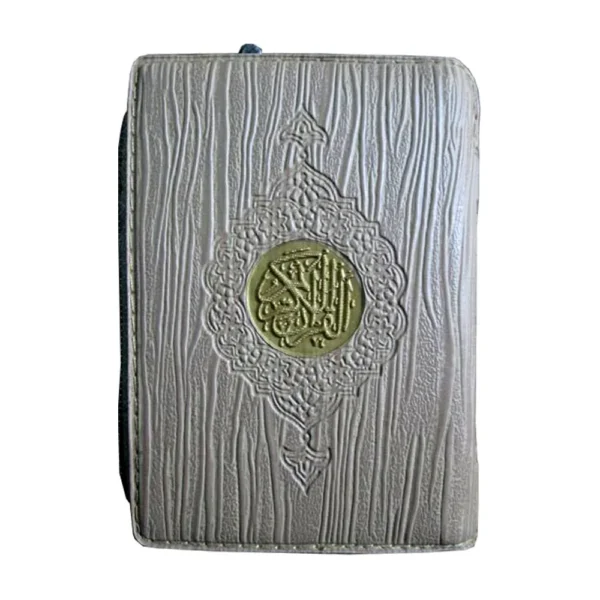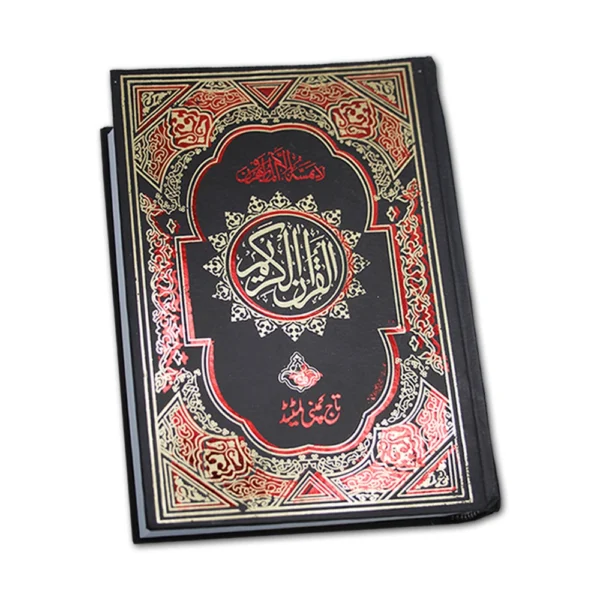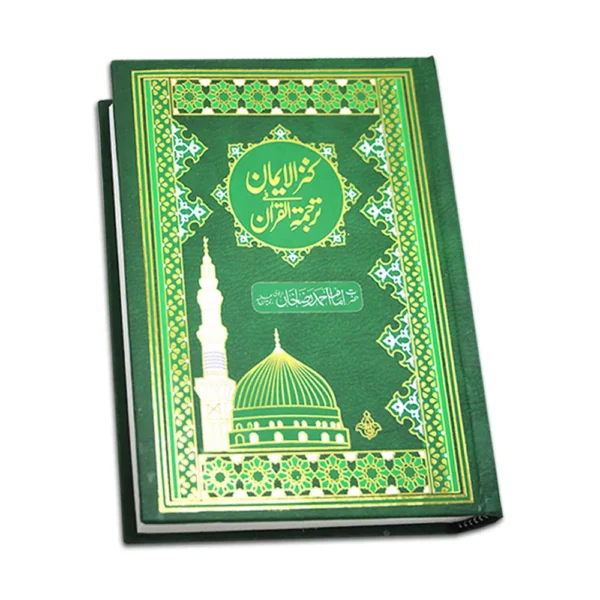| Weight | 1.2 kg |
|---|---|
| Dimensions | 5 × 7 in |
| Size |
|
| Paper |
|
| Pages |
|
Description:
Dalail ul Khairat with Dua Hizbul Bahr and Qasida Burda Sharif, Urdu Translated by Abu Abdullah Syed Muhammad Bin Sulaiman Jazuli is a well-known classical book of Islamic prayers and blessings, particularly dedicated to the remembrance and praise of Prophet Muhammad (PBUH). Below is a detailed description of the chapters and sections:
•فصل اول (First Chapter): This section serves as the opening part of the book, marking the start of the prayers and blessings.
* آداب و خیالات (Etiquettes and Thoughts): A detailed guide on the etiquette and mindset one should adopt when engaging in the recitation.
* فاتحہ داروالایمان و اعترافات زبانی (Fatiha – Supplication of Faith and Verbal Affirmation): A recitation of Fatiha combined with expressions of faith.
* تحلیل (Tahleel – Proclamation of God’s Oneness): This section emphasizes the monotheism of Allah, with frequent mentions of the phrase “La ilaha illallah.”
* صلوات عظیمہ (The Great Salutation): Salutations upon the Prophet Muhammad (PBUH), which hold great significance.
* استغفار کبیر (Major Repentance): An extensive prayer seeking forgiveness from Allah for sins.
* آیات الافتتاح (Verses of Opening): Quranic verses that are meant to be recited as an introduction to the prayers.
* حضرت رسول اللہ ﷺ کےاسمائے شریف (Names of the Prophet Muhammad ﷺ): A section highlighting the blessed names of the Prophet.
* فضائل و برکات دومہ شریعت (Virtues and Blessings of the Prophet’s Path): This chapter discusses the benefits and blessings of following the Shariah (Islamic law) of Prophet Muhammad.
* توفیق اللہ تعالیٰ کے زیراثر (Under God’s Permission): A section that focuses on seeking guidance and permission from Allah in all affairs.
* دعائے سرورِ عالم (Prayer for the Leader of the Worlds): A prayer that seeks blessings for Prophet Muhammad, referred to as the “Leader of the Worlds.”
* نعت (Eulogies in Praise of the Prophet): This chapter includes praises for the Prophet Muhammad (PBUH).
* تعریف حزب البحر (Introduction to Hizb ul Bahr): This section introduces and explains the significance of the famous Hizb ul Bahr prayer.
* دعائے حزب البحر (Hizb ul Bahr Prayer): The complete prayer of Hizb ul Bahr is included, which is recited for protection and blessings.
* قصیدہ بردہ شریف (Qasida Burda Sharif): This is the widely known poem written in praise of the Prophet Muhammad (PBUH) by Imam Busiri.
* تعریف قصیدہ بردہ شریف (Introduction to Qasida Burda Sharif): A brief explanation of the background and importance of the Qasida Burda.
* خواص فصل (Special Qualities of the Qasida): A section detailing the special spiritual benefits of reciting the Qasida Burda.
* خاتم الفصل (Conclusion of the Section): A closing statement or prayer marking the end of the Qasida.
* زکر (Remembrance/Invocation): A segment focused on remembrance of Allah through specific invocations.
* کرامات و احادیث نبی اکرم ﷺ (Miracles and Hadith of Prophet Muhammad ﷺ): This chapter discusses some of the miracles associated with Prophet Muhammad and includes selected Hadith.
* قرآن پاک کی فضیلت (Virtue of the Holy Quran): The significance of the Quran and its role in a believer’s life.
* تذکار و رسومات نبی اکرم ﷺ (Remembrances and Practices of Prophet Muhammad ﷺ): An outline of some of the key practices of Prophet Muhammad.
* آخری فصل (The Last Chapter): The final chapter, which contains closing prayers and invocations.
* حمد باری تعالیٰ (Praise of Allah Almighty): A concluding section offering praise and gratitude to Allah for His blessings.
The “Dalail al Khairat” is a structured guide filled with prayers, supplications, invocations, and praises for the Prophet Muhammad (PBUH). Each section serves to enhance the spiritual journey of the reader by providing deeply meaningful prayers for seeking Allah’s blessings and forgiveness while showing devotion to the Prophet Muhammad. The inclusion of renowned pieces such as “Hizb ul Bahr” and “Qasida Burda Sharif” makes this book highly revered in the Islamic tradition.

